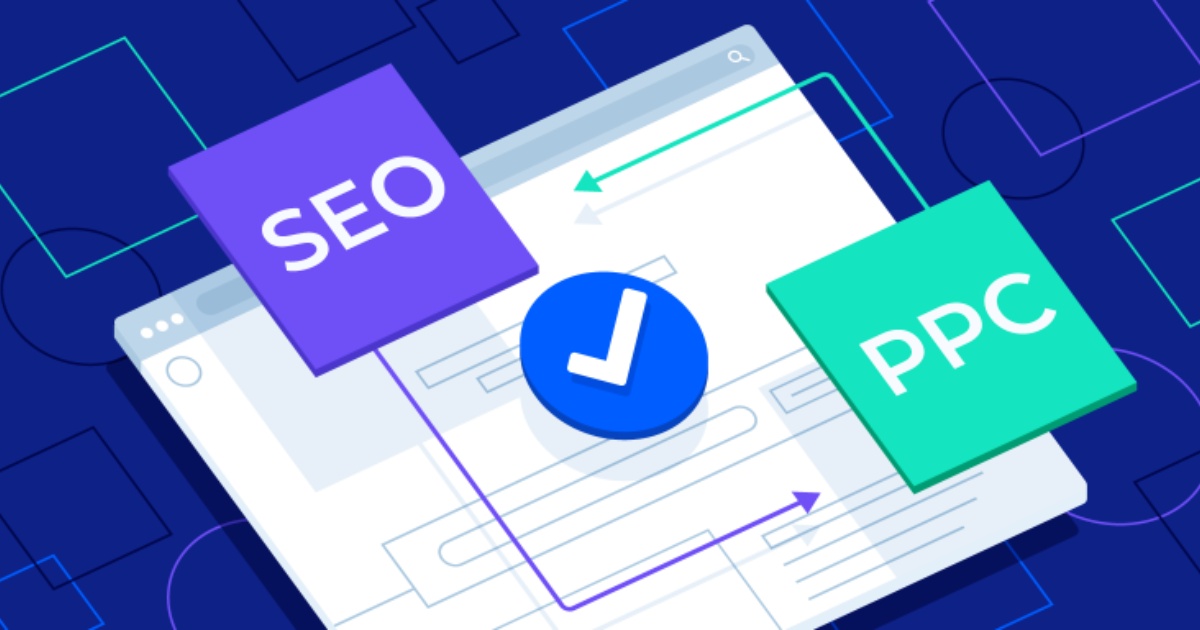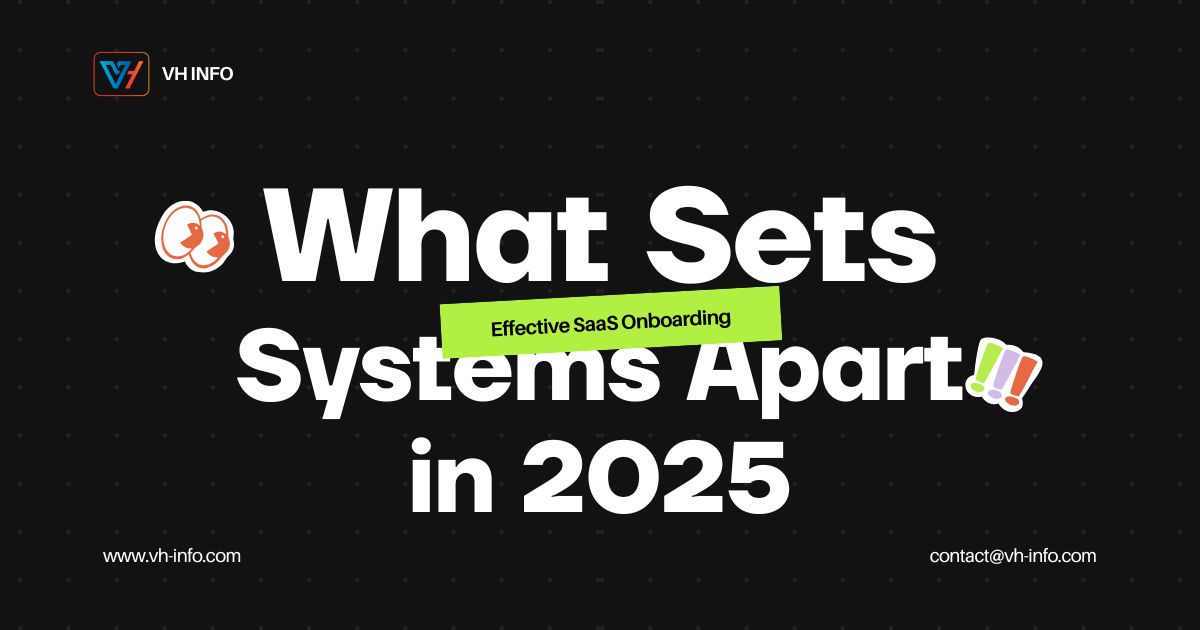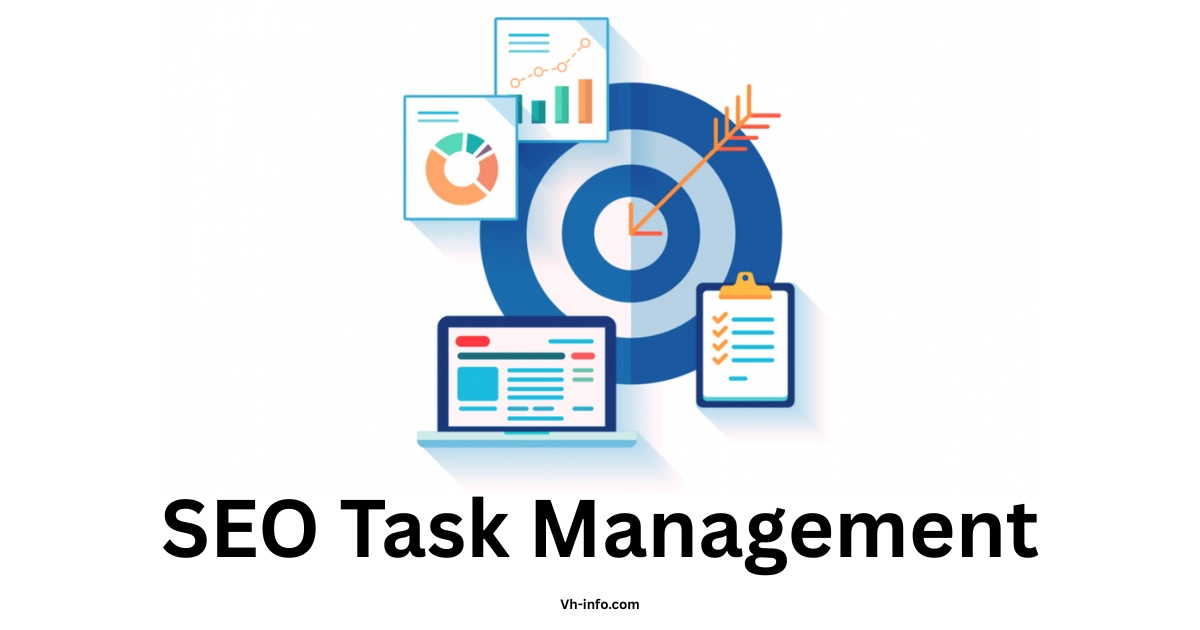Many digital marketing teams debate the value of pay-per-click and organic search together.
Some wonder if focusing on one channel is enough to boost website traffic. In reality, giving equal attention to both PPC advertising and search engine optimization yields substantial search visibility and can guide a target audience toward a desired action.
From our experience at VH Info, combining a solid PPC campaign with consistent SEO efforts is a powerful way to take advantage of immediate results while laying a foundation for stable future growth.
This blog post examines how PPC and SEO strategies reinforce each other in a modern marketing landscape.
Key points include how SEO can inform your PPC ad copy, how paid search can reveal relevant keywords, and why organic search results can get stronger as you balance your investments in ads and technical SEO.
Addressing search intent from multiple angles can help maximize the amount of traffic your brand receives in a search engine result. That lift translates into higher conversion rate outcomes, greater brand awareness, and deeper trust with potential customers.
What Are PPC and SEO?
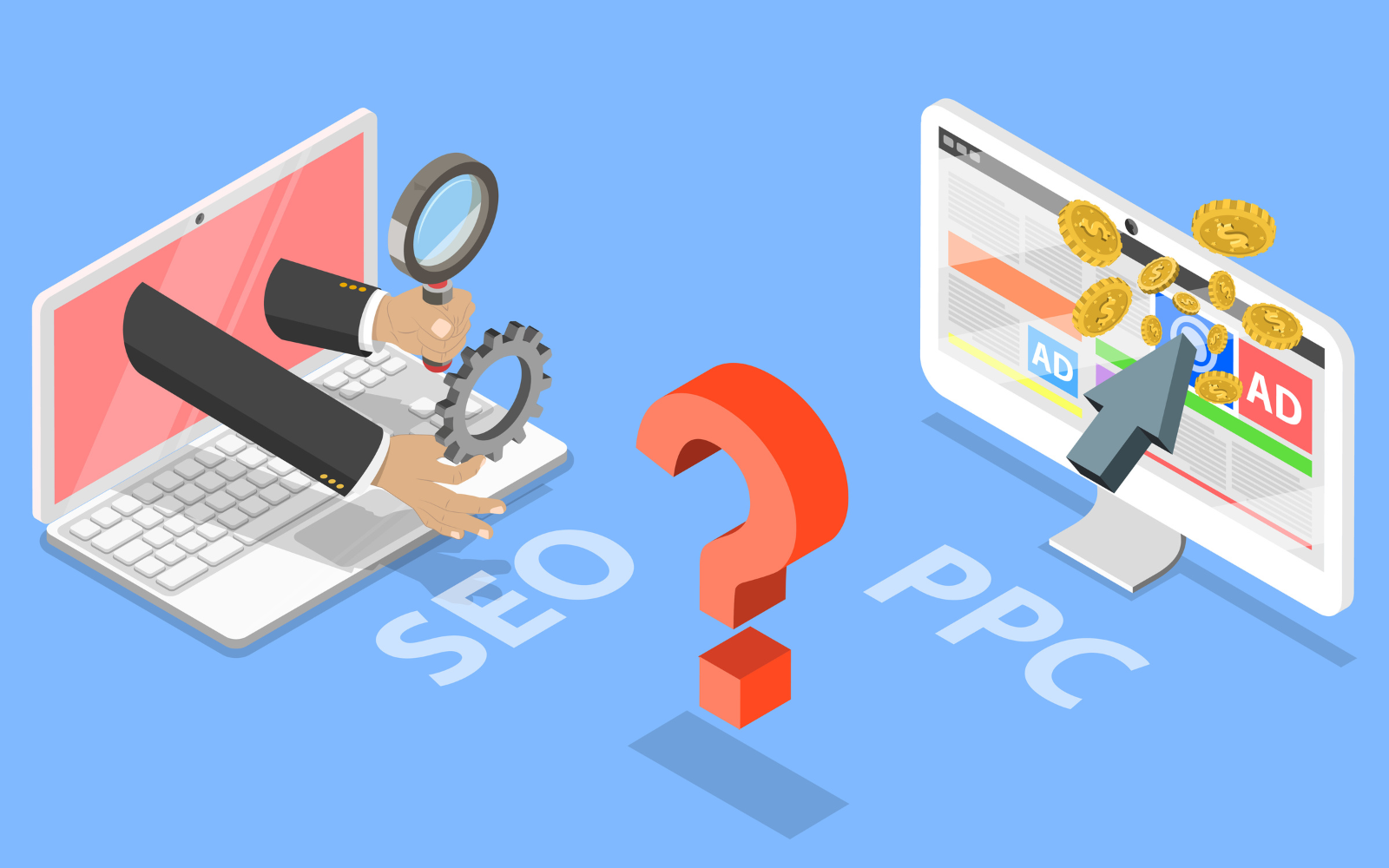
Pay-per-click refers to a form of paid search marketing in which you bid on specific keywords to display a paid ad in search results.
Google Ads remains one of the most popular PPC strategies, although Microsoft’s platform and social media channels also provide options to run search ads.
With PPC, you only pay when someone clicks. You can A/B test ad copy quickly, set a budget, measure search visibility, and fine-tune the PPC data you collect. These PPC efforts can bring visitors to a landing page right away, often placing your offering near the top of search engine pages. High positions come at a cost, but prime real estate can deliver immediate traffic, especially when competitive keywords are involved.
Search engine optimization is the process of creating and refining seo content, backlinks, and technical elements so your pages rank well in organic listings. SEO strategies center on matching your content creation with the search intent of your target audience.
This involves using keyword research and optimizing page titles, meta descriptions, and internal links to clarify what a page covers.
Good SEO also relies on a combination of short- and long-tail specific keywords, simple site navigation, relevant headings, fast load times, and resonates with user experience standards.
It takes time to see results, but once you start ranking on the first page, you gain a relatively stable flow of organic traffic. Coupled with social media promotion and strategic link building, an SEO plan drives brand awareness and helps you engage prospects who are ready to convert.
Does SEO Affect PPC, Or Does PPC Affect SEO?

Teams often ask how SEO and PPC work together, or if they operate in separate lanes. In practice, PPC work and SEO efforts constantly influence one another.
Here’s a closer look:
- SEO affects PPC: When your website has high-quality pages and user-friendly navigation, your landing page experience for paid search improves. A better landing page experience can lift your Google Ads quality score, potentially reducing cost-per-click. Successful SEO also yields keyword data through Google Search Console, which your paid ad team can analyze for insights. Content that ranks well can guide the ad approach: you can see which relevant keywords bring organic clicks and then decide if you should use PPC for those terms to capture a bigger share of search engine traffic.
- PPC affects SEO: Paid search can reveal quick patterns in keyword performance. For instance, if you run a PPC campaign on a test set of keywords, you’ll gather ppc data on click rates, bounce rates, and other metrics faster than your standard SEO approach might. That immediate insight helps shape your SEO strategies by confirming which relevant keywords match user intent and lead to conversions. Also, as users see your paid ads, they become more familiar with your brand. That has a modest effect on brand recognition, which can improve dwell time and conversions on your organic listing.
In short, both channels rely on a search engine’s user data and help each other refine your marketing strategies. PPC might influence the next round of content you plan for organic search, while SEO might point to a new set of terms worth allocating budget to in your next paid ad.
Why PPC and SEO Should Work Together?

PPC and SEO represent two paths that lead to the same goal: putting your brand in front of people at precisely the time they need your unique selling points. Instead of letting them operate as disconnected parts, it’s far more effective to integrate them. This approach allows your team to utilize search console metrics, Google Analytics data, and the synergy of both paid search and organic content.
Benefits of Integrating PPC and SEO
- Increased Search Engine Visibility: Appearing both in organic search results and search ads on the top of search engine pages amplifies your likelihood of a user click. Dominating both paid and organic real estate can help you capture a larger market share.
- Better Keyword Research: PPC advertising delivers valuable keyword data quickly. Through Google ads reports and Google keyword planner, you can see which specific keywords spark user interest. That data can guide SEO content to target identified gaps or confirm that your blog post is aligned with consumer search intent.
- Reduced Reliance on One Channel: Relying solely on paid or organic can be risky. If your paid budget drops, your brand might vanish from the first page. If organic ranking algorithms shift, you might lose traffic. When PPC strategies and SEO strategies are coordinated, you’ll have a more balanced online presence.
- More Precise A/B Test: You can run a b test on ad copy quickly to see what resonates. Then, you can adapt those insights in your meta descriptions and page titles across your organic content. This cross-channel testing can improve user experience and strengthen your conversion rate.
- Faster Feedback Loop: PPC can show immediate results about keyword performance and audience behavior. That data can feed back into your SEO content pipeline, letting you optimize technical SEO factors, topics, and calls to action faster.
Challenges of Using PPC and SEO Together
- Budget Constraints: Paid search requires ongoing spending, so if resources are tight, investing in either PPC or SEO alone might feel safer. However, overspending on ads can lead to fewer resources for content creation and link building.
- Complex Analytics: When you mix Google search console metrics with PPC data from Google Analytics, it can be tricky to spot clear patterns. Teams often need to unify data sets across both channels so they can wholeheartedly focus on a single source of truth.
- Organizational Silos: Bigger teams may keep SEO and PPC separate. If the two groups rarely coordinate, they might miss out on synergy. A good practice is to align keyword research and share SEO data, PPC data, and new ideas for future marketing strategies.
- Difficulty Balancing Immediate Needs with Long-Term Vision: Some marketing teams want instant conversions from PPC, but they fail to invest properly in SEO. Others commit solely to SEO, only to watch their rivals gain a strong presence in paid ad spaces. Balancing short-term PPC strategies and long-term SEO efforts can require patience and resources.
Can SEO and PPC Work Together?
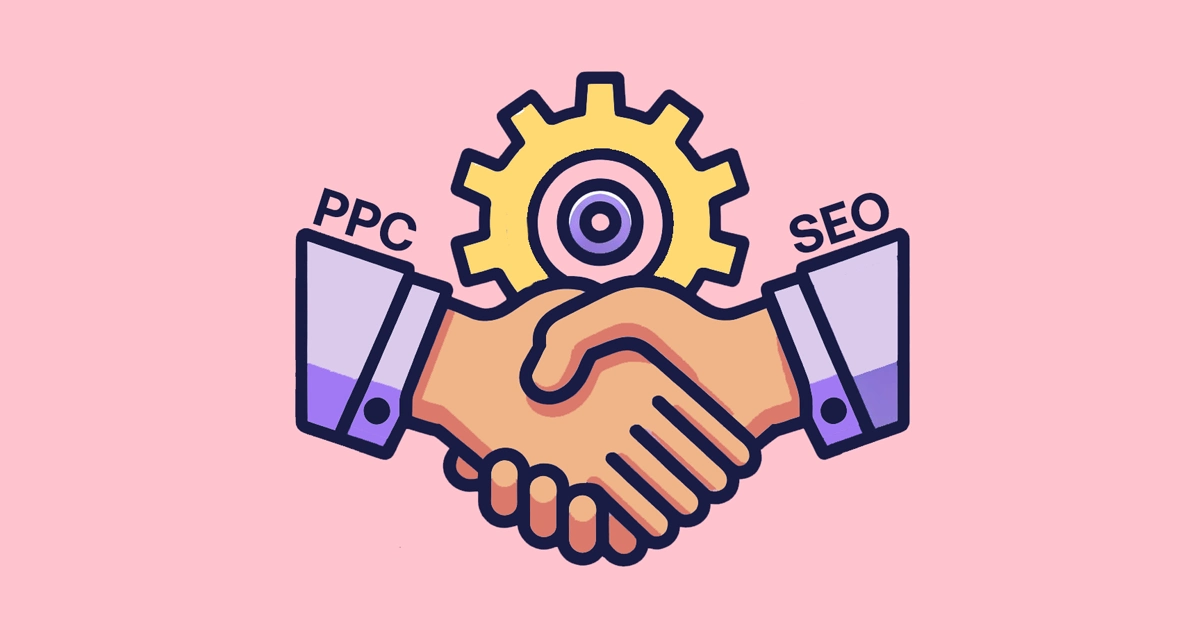
The short answer is yes. Combining them is key if you aim to cover all the bases of search engine marketing. The interplay between them is what leads to the highest return on your marketing resources.
For instance, imagine you run search ads for a set of relevant keywords and glean valuable user engagement data. You realize your PPC ad has generated steady clicks with certain terms.
Meanwhile, your SEO team spots that your blog post on a related topic consistently lands among the top organic listings, but the bounce rate is higher than expected.
This is where synergy helps: you can include knowledge from your paid search data (like which ad copy or call to action works best) into your on-page SEO. You might also create a new landing page that specifically addresses user issues uncovered in your search ads.
When you unify PPC and SEO, you’re using PPC to gather immediate insights and adjust your site’s organic content based on real user behavior. The result is a more streamlined user experience, better alignment with search intent, and a boost in overall website traffic.
At VH Info, we see this union as a near necessity for building a consistent online presence.
5 Tactics & Strategies to Make SEO and PPC Work Together

- Align Keywords and Content Across Channels: Use Google keyword planner and Google search console to spot high-traffic queries. Run a short PPC campaign for these terms to check click-through rates and see how your landing page experience functions for those specific keywords. If results look strong, integrate them into your SEO content strategy with dedicated pages or sections. With this approach, the PPC data from Google ads reveals user behavior quickly, and the organic content ensures longevity. Aim for 360-degree coverage where your brand appears on both the paid and organic listing.
- Use PPC to Test Ad Copy for Organic SEO Elements: PPC strategies let you quickly try new headlines, calls to action, and synonyms for your products. Suppose you discover that a particular line in your PPC ad receives a high click-through rate. Take that winning phrase and include it in your page titles or meta descriptions on your organic pages. Repeating the phrase in the content might also help you reach the top of search engine pages. This helps unify your brand message and lifts your quality score by sending search engines consistent relevance signals.
- Coordinate Landing Pages for Both SEO and PPC: If your PPC and SEO teams are separate, they might each build their landing pages. That can lead to mixed signals and wasted time. Instead, collaborate to design a single, optimized landing page for paid search and organic search. Ensure it meets user experience guidelines, matches relevant keywords, and talks directly to your target audience. Also track performance with Google Analytics, measuring bounce rate and dwell time. If the page performs well, replicate that winning layout for other topics. This synergy produces a unified brand message at every touchpoint.
- Run Technical SEO Audits With PPC in Mind: Many teams run technical SEO checks to improve site structure, mobile responsiveness, and page speed. Include insights from paid campaigns in your audits. If your PPC ads for a certain product get plenty of clicks but a high bounce rate on the landing page, it may indicate an issue with page load time or form design. That signals your technical SEO team to check the page for performance issues or missing content.
- Unify Reporting on SEO and PPC: Combine SEO and PPC data into one dashboard by integrating Google Search Console for organic query impressions with Google Analytics or Google Ads data. Viewing all data in one place helps identify high-traffic keywords, revealing any overlap or missed opportunities. Adjust PPC bids based on organic rankings to optimize performance.
Should I invest in SEO Or PPC?
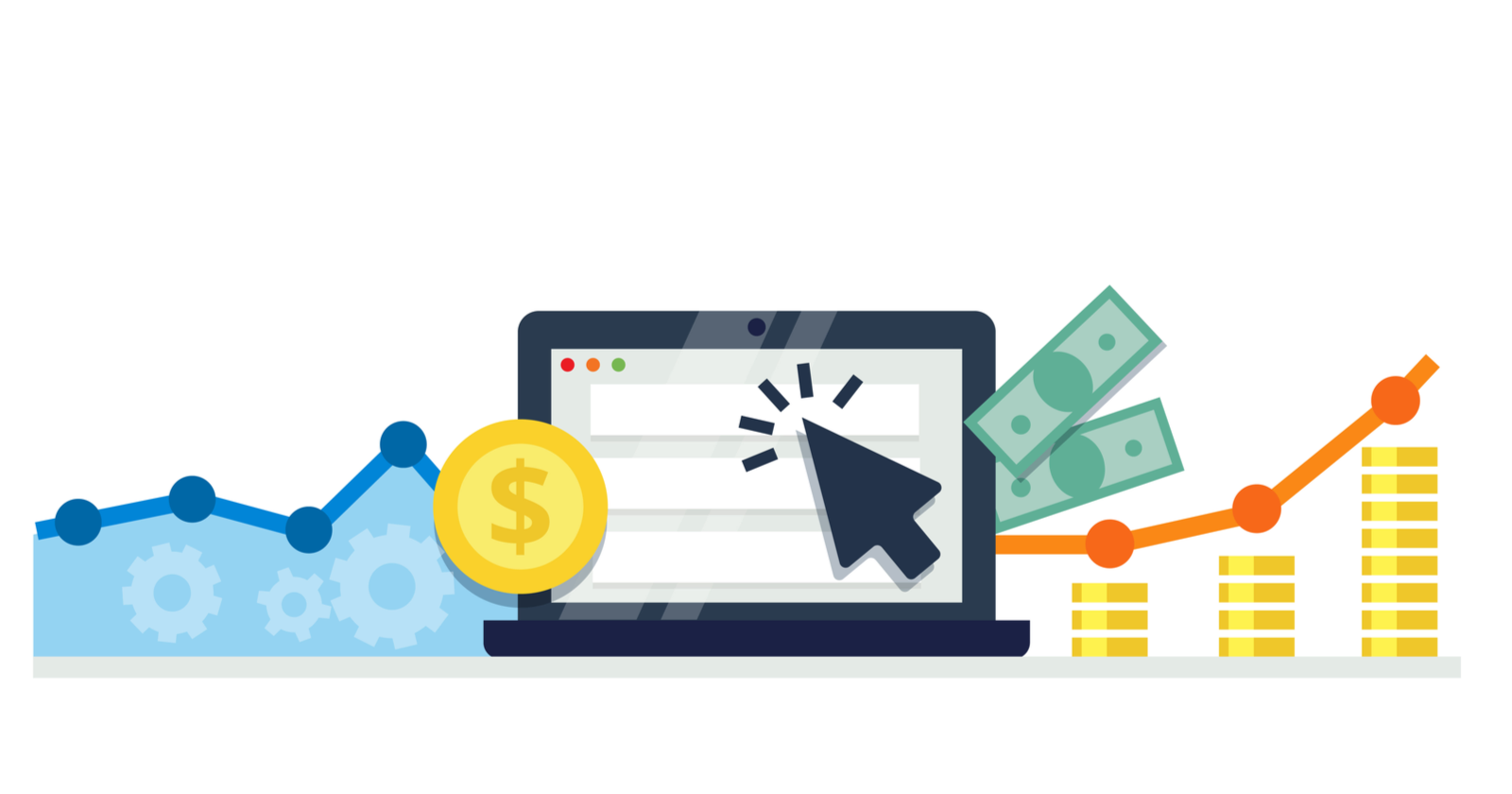
Teams often debate whether to focus on SEO or PPC. The best solution usually depends on your goals and resources.
If you need immediate results, paid ads can secure attention. If resources allow for a more long-term focus that builds trust and authority, SEO might be a better option.
Often, a combination of both yields the most robust strategy, especially for businesses that want consistent brand awareness and strong reach.
Here are some pointers:
- When to Lean Toward PPC: If you’re running time-sensitive promotions, such as a short product launch, or have new offerings that you expect people to search for but you’re not ranking yet, PPC advertising can position you quickly at the top of search engine pages. You can measure your conversion rate in real time and adjust your marketing spend accordingly.
- When to Emphasize SEO: If you want stable organic traffic and user trust, or you aim to grow your domain authority, it’s smart to invest in link building, content creation, and technical improvements. Over time, your site will generate leads without the consistent spending required by paid ads. SEO is also ideal if you need brand credibility or want to capture a broad array of low-competition search queries.
- When to Combine: For many businesses, the best approach is to unify them. Let PPC strategies provide early keyword insights, and use those insights to refine your SEO content. Then harness your strong organic positions to reduce your reliance on paid ads, or concentrate that ad spend on new keywords that are too competitive for immediate organic success.
For SaaS companies especially, investing in a blend of technical SEO and PPC can greatly accelerate user acquisition.
That’s something our team at VH Info sees repeatedly in the SaaS link-building projects we run: clients who sync their paid and organic search strategies attract more qualified leads.
Conclusion
PPC and SEO both serve a single ultimate purpose: drawing the right kind of visitors to your site so they can take the desired action. Combining a robust organic listing with well-executed search ads is one of the best practices for building brand awareness and reaching your target audience. The synergy comes from shared keyword data, aligned content themes, and an ongoing commitment to consistent user experience.
Using search engine marketing across these two strategies provides you with a chance to capture a larger market share at every stage of the customer journey. Teams that use both PPC and SEO together often achieve better Google ad scores, improved search results data, and increased conversions. This method allows you to refine each channel: new PPC data can improve SEO strategies, while fresh SEO insights can help with PPC.
Whether launching a new product, optimizing a landing page, or expanding online presence, combining SEO and PPC offers valuable solutions. This strategy provides a comprehensive view for creating the right marketing mix in your digital plan.
For tips on enhancing search visibility, reach out to VH Info for link-building services and SaaS-focused marketing strategies. These are designed to secure top search engine rankings through immediate PPC actions or long-term growth from quality SEO content.
